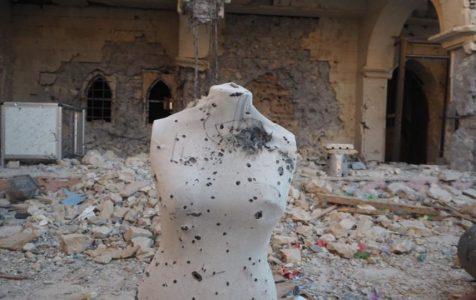
Weapons used by ISIS terroists to unleash genocide
On January 23, 2017, a motion for a resolution on European weapons and funds for Daesh was tabled at the Council of Europe by Mr Pieter Omtzigt MP and others. It received support from several members of the Parliamentary Assembly of the Council of Europe (the Assembly). The motion has not been discussed in the Assembly and commits only the 48 parliamentarians who signed the motion.
The motion for a resolution follows a recent report which results from a three-year field investigation conducted by the Conflict Armament Research (CAR) into Daesh supply chains in Syria and Iraq. In recent years, Daesh has been one of the most violent terror groups. It has gained international support from foreign fighters, including over 5,000 foreign fighters from Europe. Their annual income from extortion and antique handle was assessed in 2016 at USD 2 billion. International institutions and several states have accused Daesh of committing genocide and crimes against humanity. Daesh targeted religious minorities in Syria and Iraq, most notably, Yazidis and Christian minorities.
The Council of Europe was the first international institution, in January 2016, to recognise the Daesh atrocities as genocide or crimes against humanity. This initiative was led by Pieter Omtzigt MP who subsequently took a position as rapporteur on bringing Daesh to justice. The Assembly adopted the report and resolution of Pieter Omtzigt MP on bringing Daesh to justice during the second half of 2017. The documents made clear the need to bring Daesh fighters to justice but also highlighted the need to address the issue of complicit actors.
The report made it clear that duty to prosecute is not only owed by the states where Daesh fighters committed their atrocities. The same duty lies with all states’ whose citizens have travelled to Syria and Iraq to join the Daesh forces there. While the issue of prosecuting Daesh fighters, whether in Syria and Iraq or in the countries of origin of its foreign fighters, remains ongoing, the question of complicit actors remains neglected.
The new motion for a resolution is a proposal to address the issue of complicit actors that funded or otherwise assisted the Daesh atrocities, for example, by supplying the weapons. It is a direct response to the evidence presented in the CAR’s report. The CAR’s research analysed over 40,000 items recovered from Daesh between 2014 and 2017. The CAR report identified non-Europen countries as the main manufacturer of weapons documented in Syria and Iraq. Chinese weapons formed the majority of the weapons recovered in Iraq with Russian manufacturers (closely followed by Chinese) forming the majority of weapons seized in Syria.
The research found that out of the many weapons recovered from Daesh in pursuance of the research originated from European countries, Romania turned out to be the main European manufacturer of the recovered weapons in Syria and Iraq, followed by Hungary, Bulgaria, Germany, Serbia, Poland, and the Czech Republic. The report further indicated that the former Warsaw Pact EU Member States (Romania, Hungary, Bulgaria, Poland and the Czech Republic) manufactured 28% of the weapons found in Iraq and 42% of the weapons recovered in Syria.
Source: Forbes





